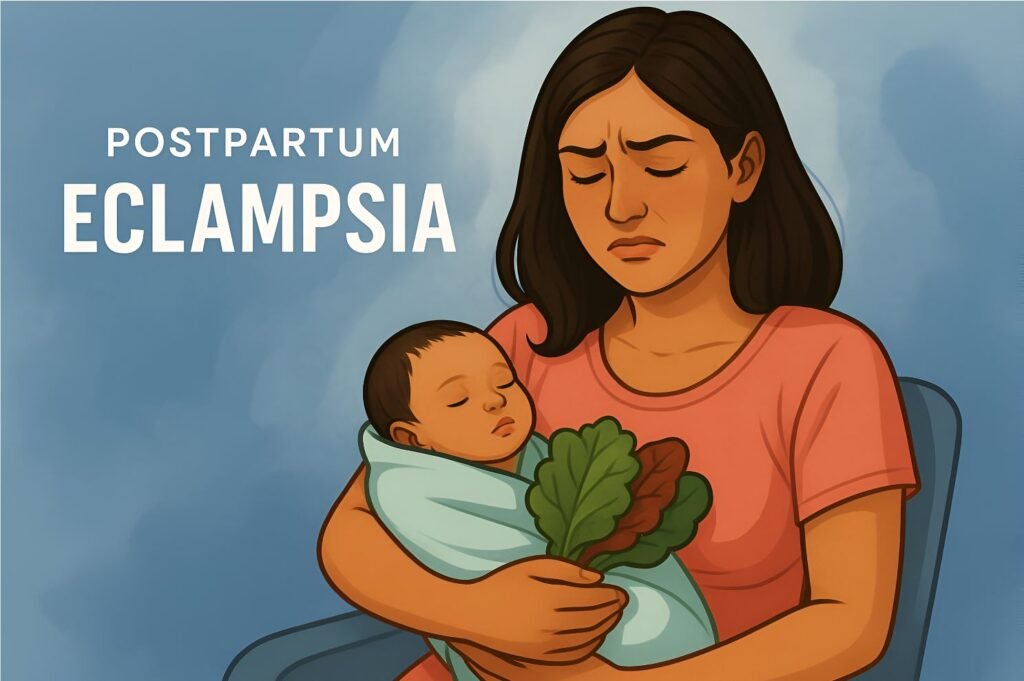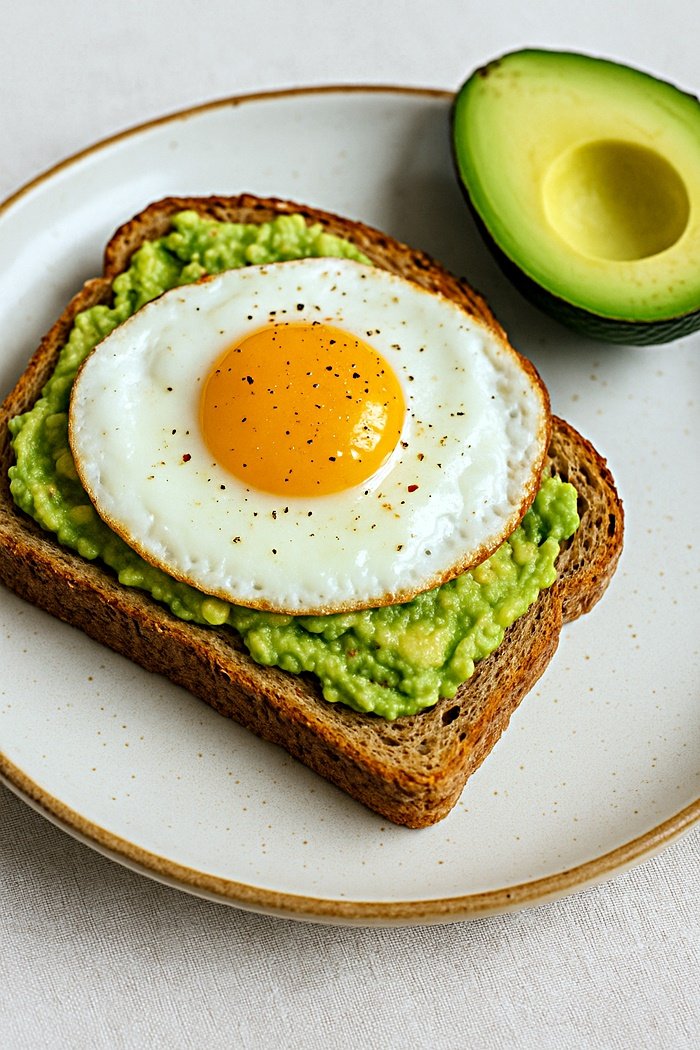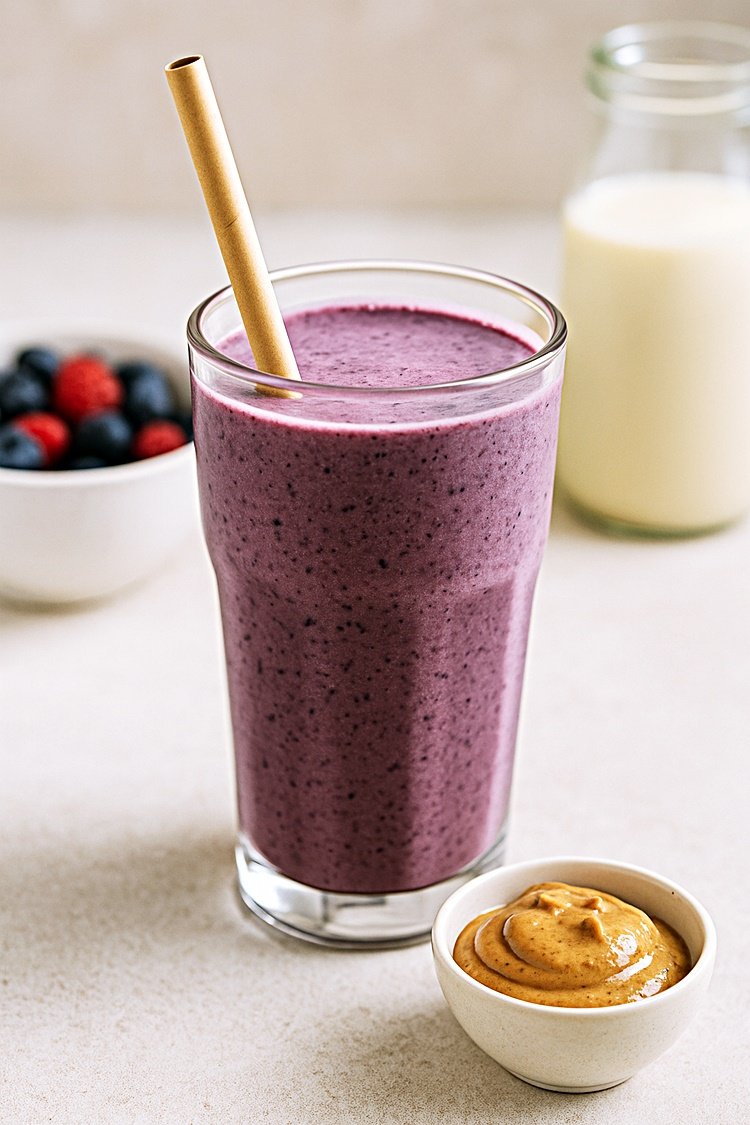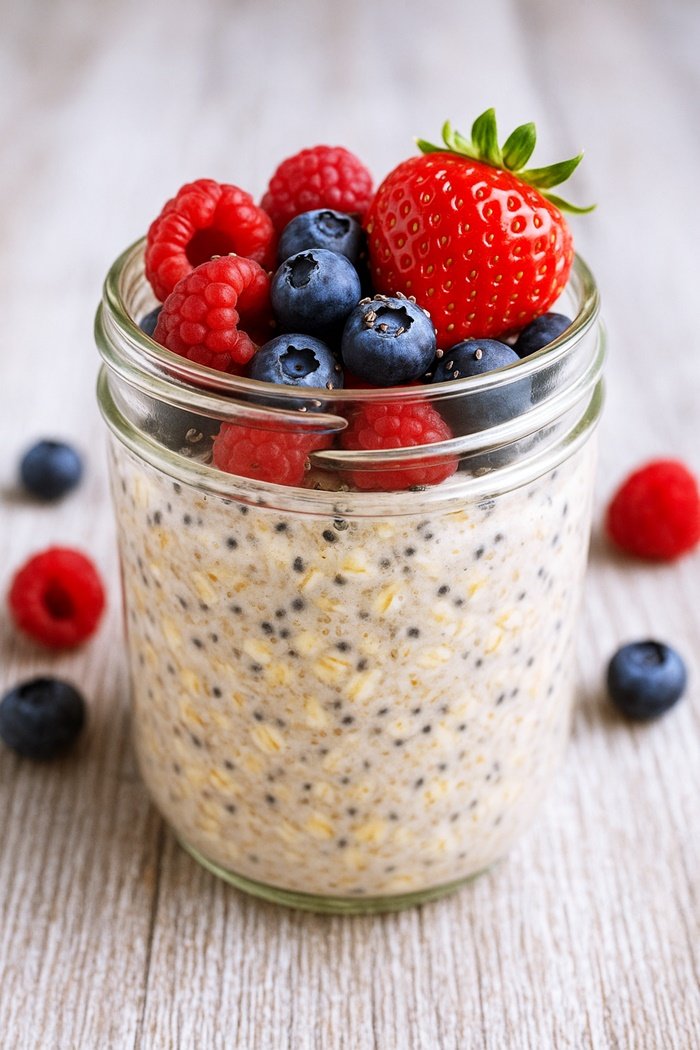
Postpartum Eclampsia: Nutrition for Recovery & Prevention
What Is Postpartum Eclampsia?
Postpartum eclampsia is a rare but life-threatening condition where high blood pressure leads to seizures after childbirth, usually within 48 hours to 6 weeks postpartum. It’s an extension of preeclampsia that wasn’t resolved after delivery.
What’s Happening in Your Body?
✔ Severe hypertension (dangerously high blood pressure)
✔ Organ stress (kidneys, liver, brain)
✔ Risk of seizures or stroke
✔ Fluid retention & swelling
Nutrition plays a crucial role in recovery, stabilizing blood pressure, and preventing complications.
Best Foods for Postpartum Eclampsia Recovery
1. High-Protein Foods (80–100g/day)
Why? Repairs tissues, stabilizes blood sugar, and reduces inflammation.
✔ Best sources:
- Lean meats (chicken, turkey)
- Fatty fish (salmon—rich in omega-3s)
- Eggs (choline for brain recovery)
- Lentils & beans (fiber + iron)
2. Healthy Fats (50–70g/day)
Why? Reduces inflammation and supports brain healing.
✔ Best sources:
- Avocados
- Nuts & seeds (walnuts, flaxseeds)
- Olive oil
- Full-fat Greek yogurt (probiotics for gut health)
3. Complex Carbs (150–200g/day)
Why? Provides steady energy without blood sugar spikes.
✔ Best sources:
- Oats (helps lactation & BP regulation)
- Sweet potatoes (potassium lowers BP)
- Quinoa (complete protein + fiber)
- Berries (antioxidants reduce oxidative stress)
4. Key Micronutrients for Recovery
| Nutrient | Why It Matters | Best Food Sources |
|---|---|---|
| Magnesium | Relaxes blood vessels | Spinach, pumpkin seeds, dark chocolate |
| Potassium | Balances sodium & lowers BP | Bananas, sweet potatoes, coconut water |
| Calcium | Supports nerve function | Dairy, almonds, leafy greens |
| Omega-3s | Reduces inflammation | Salmon, chia seeds, walnuts |
| Vitamin C | Aids wound healing | Citrus, bell peppers, kiwi |
Foods to Avoid with Postpartum Eclampsia
Excess salt (worsens swelling & hypertension—avoid processed foods).
Refined sugars (spikes blood pressure & inflammation).
Caffeine (can raise BP—limit or avoid).
Alcohol (interferes with recovery & medications).
Macronutrient & Calorie Needs
Daily Caloric Intake
- Non-breastfeeding: ~1,800–2,200 kcal
- Breastfeeding: ~2,300–2,700 kcal (extra for milk production)
Macro Breakdown for Recovery
| Macro | Grams/Day | % of Calories |
|---|---|---|
| Carbs | 150–200g | 40–50% |
| Protein | 80–100g | 25–30% |
| Fats | 50–70g | 25–30% |
Key: Higher protein & healthy fats help stabilize BP and healing.
Sample Postpartum Eclampsia Meal Plan (2,400 kcal/day)
Breakfast (600 kcal)
- Oatmeal with chia seeds, walnuts, and berries
- Scrambled eggs (2 eggs + spinach)
- Macros: 60g carbs, 25g protein, 25g fat
Snack (300 kcal)
- Greek yogurt with flaxseeds & honey
- Macros: 25g carbs, 15g protein, 12g fat
Lunch (650 kcal)
- Grilled salmon with quinoa & steamed broccoli
- Side salad (avocado, olive oil dressing)
- Macros: 55g carbs, 35g protein, 30g fat
Snack (250 kcal)
- Apple slices with almond butter
- Macros: 30g carbs, 5g protein, 12g fat
Dinner (600 kcal)
- Baked chicken with roasted sweet potatoes & asparagus
- Macros: 50g carbs, 40g protein, 25g fat
Dessert (150 kcal)
- Dark chocolate (85%) + raspberries
- Macros: 15g carbs, 3g protein, 10g fat
Lifestyle Tips for Managing Postpartum Eclampsia
✔ Monitor BP daily (report any spikes to your doctor immediately).
✔ Stay hydrated (2–3L water/day—helps kidney function).
✔ Rest & avoid stress (prioritize sleep when possible).
✔ Gentle movement (short walks, if approved by your doctor).
When to Seek Emergency Care
Severe headache that won’t go away
Blurred vision or seeing spots
Sudden swelling in hands/face
Chest pain or difficulty breathing
Free Download: Postpartum Eclampsia Nutrition Tracker
Click Below (Track macros, BP, and symptoms!)
Final Thoughts
Recovering from postpartum eclampsia requires medical care, rest, and nutrient-dense foods. Focus on anti-inflammatory, high-protein meals, and always follow your doctor’s guidance.
(Note: This is not medical advice. Always consult your healthcare provider.)



